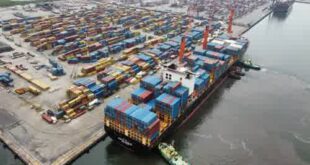By Joel Anekwe
The Hydrocarbon Pollution Remediation Project (HYPREP) and some civil society organizations (CSOs) in Rivers State have disagreed sharply on the level of work done so far on the clean-up of oil polluted sites in Ogoniland.
While HYPREP says that the clean-up has fully commenced, civil society organizations and community sources vehemently disagree, saying that the exercise had not fully commenced and lament the dangers associated with continued delay in embarking on the actual clean up.
HYPREP believes it is making commendable progress with the clean-up exercise, but the CSOs and community representatives argue that HYPREP efforts so far is mostly one of motion without movement.
Parties took time to articulate their positions at the Civil Society Legislative Advocacy Centre (CISLAC) and CORDAID organised Bi-Annual CSOs Communities Technical Engagement To Review the Progress of the Clean-Up.
In his presentation, Dr. Sampson Ebimaro, head, Monitoring and Evaluation, HYPREP tried to convince the audience that the clean-up process was fully on course attributing the feeling of delay to lack of adequate understanding of the workings and procedures of HYPREP.
“I think that those who are saying that HYPREP has not done enough, they don’t have enough information about HYPREP activities. Some of them are very far from what HYPREP is doing and the journey so far,” he stated.
He added: “First of all, people don’t know our milestones, they don’t know what we are expected to complete at certain times. We have timelines, we have work schedules. We are following those milestones and work schedules meticulously and we have adopted the strategy of planning forward and planning backwards so that we can harvest adequate information from members of the public.”
He further explained that the organisation decided not to be too much in a hurry, saying: “we have to go according to our timelines, we don’t have to be too fast because we don’t have any reference point in terms of the implementation of this project.
“Remember that the UNEP Report on Ogoniland was just a report and policy document, it has no implementation plan,” he said, adding that HYPREP had to write the implementation plan and project design.
These, in addition to many others, including government bureaucratic bottlenecks, he stated contributed to the delay in the commencement of the clean-up exercise, calling for understanding as HYPREP was determined to carry out a thorough exercise with the Ogoni clean-up.
However, most of the civil society organisations represented at the meeting differed with him on many fronts picking holes with several aspects of the process and expressing fears about the competence and readiness of HYPREP to actually do the clean-up.
In his presentation at the event, Dr. Kabari Sam, an environmental expert and head, Environment and Conservation, Centre for Environment, Hunan Rights & Development, while acknowledging that a lot was actually going on with the clean-up exercise said: “there are more problems that call for more questions.”
He pointed out that going by the terms of contracts of the 21 contractors engaged for the cleanup, the contracts which were for six months duration were already expired, with 15 of them unable to do anything because of conflicts associated with their lots for the exercise.
He added that a CRAC team was formed to ensure that any conflict arising between communities, in relation with land ownership, could be easily resolved, but noted that the team had not resolved any of such conflicts, stalling the activities of the 15 contractors.
“CRAC was established to ensure that the process is conflict-free, but we are not aware that CRAC has addressed any of the conflicts already bogging down the activities of some of the contractors,” Kabari stated.
He also disagreed with claims by the HYPREP representative that livelihood was not provided for in the UNEP Report but was only added by the government. “It is not true that livelihood was not provided in the UNEP Report. It is not correct for anybody in HYPREP to tell us that government is doing Ogoni people favour by adding livelihood,” he stated.
He also noted that 15% disbursement to the contractors was not enough to start any actual clean up but was just meant to mobilise to site, fencing around the site and construction of offices. “So seeing an excavator on site is not a sign that clean-up has commenced.
“Bidding has commenced for phase II, but no clean-up has been done on phase I where HYPREP claimed it will learn lessons on how to handle phase II,” he said.
Other issues like poor communication, lack of adequate community engagement and access to independent monitors to clean-up sites as well as employment of youth and women were also discussed with the conclusion that a lot still needed to be done on the clean-up exercise.
 PH Mundial – Port Harcourt Online Newspaper News Across The Region
PH Mundial – Port Harcourt Online Newspaper News Across The Region



